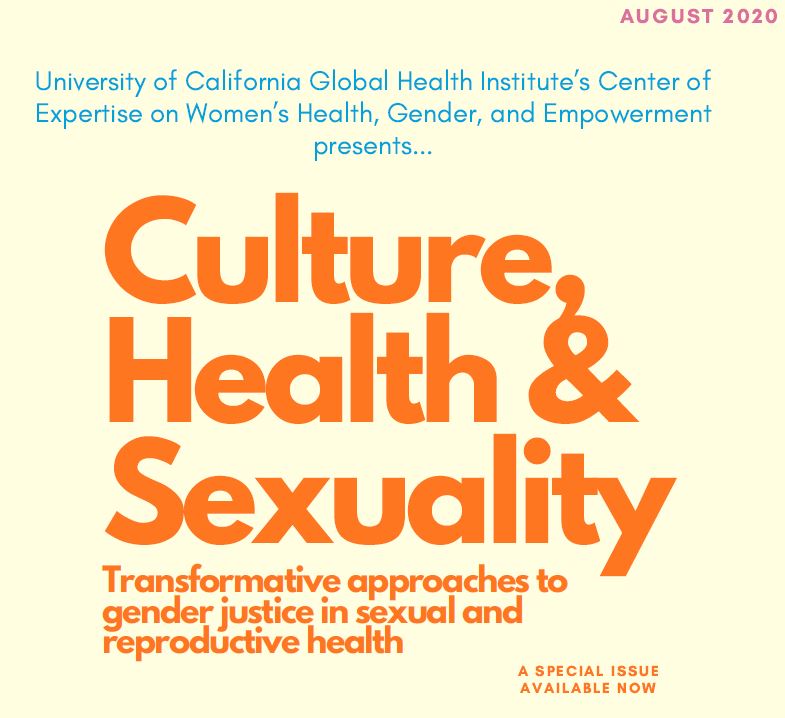WHGE COE New Special Issue: Transformative approaches to gender justice in sexual and reproductive health

Women’s empowerment has received increasing attention over the past three decades from fields as diverse as epidemiology, economic development, and social justice. Considerable research has shown that unequal power dynamics between women and men leads to numerous poor sexual and reproductive health outcomes, including increased risk of HIV, greater morbidity in childbearing, and higher levels of gender-based violence. Culture, defined broadly as the social and structural underpinnings of human behavior, works at various socio-ecological levels to sustain the unequal power dynamics that drive poor health outcomes.
Despite progress, terms such as “women’s empowerment,” “gender transformation,” and “masculinities,” are frequently used without clear definition, impeding the ability of researchers and policy makers to determine whether or not they have been attained. There is a dearth of conceptual and empirical work articulating “gender transformation” as either an outcome or a step in a broader process that results in improved health for individuals or communities. As structural approaches gain traction in the field of public health, there is a pressing need to open the ‘black box’ of empowerment and other gender-oriented interventions to better understand the mechanisms that lead to success and failure.
To address this evidence gap, the University of California Global Health Institute’s Center of Expertise on Women’s Health, Gender, and Empowerment prepared a special issue of Culture, Health & Sexuality journal on Transformative Approaches for Gender Justice in Sexual and Reproductive Health, led by Guest Editors Rebecca Fielding-Miller and Abigail Hatcher.
